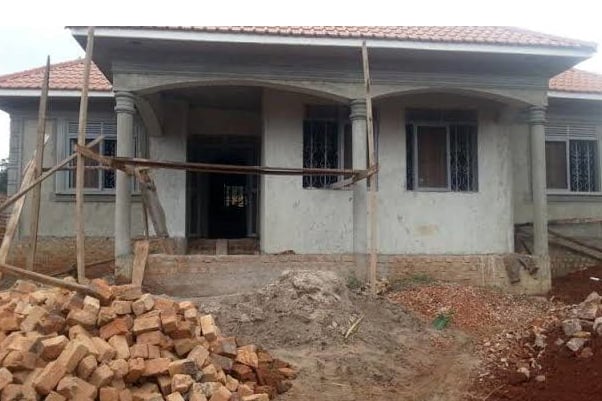Prime
Unpacking Uganda’s critical housing shortage

UBOS says 20.3 percent of the population is living in poverty, with a high housing cost burden. PHOTO/COURTSEY
What you need to know:
- There are approximately 7.3 million households in Uganda occupying 6.2 million units, with an average household size of 4.6 persons. Uganda has a total backlog of 1.6 million housing units and of this, about 210,000 units are in the urban areas and 1.395 million in rural areas.
The African Charter on Human and People’s Rights protected by the Universal Declaration of Human Rights and the East African Community Treaty recognise housing as a basic human right.
Similarly, the government of Uganda in the 1995 Constitution under the general social and economic objectives pledges decent shelter for all Ugandans.
It is the government’s responsibility to ensure that all families have decent and affordable houses that are safe, secure and fit for human habitation.
In its Vision 2040, the government of Uganda also recognizes the role of housing in the socio-economic transformation of the country.
The crisis
Unfortunately, Uganda currently faces a growing housing deficit of 2.4 million housing units. It is estimated that around 900,000 housing units in Uganda are substandard and in dire need of replacement and or upgrading.
As the country’s population shoots up, the need for housing units also goes up. It is estimated that by the end of this year, Uganda will have a population of about 48 million people, thereby raising the housing deficit to more than three million.
And by 2025, there will be about 52 million people in the country with a housing deficit of approximately four million.
A recent national housing survey report from the Uganda Bureau of Statistics (UBOS) showed that 20.3 percent of the population is living in poverty, with a high housing cost burden.
This impacts a family’s ability to provide for basic needs such as quality medical care and education for children. It is believed that when a family is supported with a home, these challenges are greatly reduced and the family can move from surviving to thriving.
According to Robert Otim, National Director, Habitat for Humanity Uganda, the organisation contributes to this housing deficit through four tailored programming approaches; the vulnerable group housing, provision of housing finance, market based technical assistance and the urbanisation programme that gives support to local governments.
Lands, Housing and Urban Development minister, Judith Nabakooba, the rate of urbanisation in Uganda is high, yet the housing rate is still low. Nabakooba also observed that increasing urbanization especially with new cities, yields slum development.
“We have increased the number of cities and they are now a centre of attraction for people from rural areas. We believe that the brains and ideas from this symposium will be in position to come up with strategies and recommendations that are practical to help us a team to concretize what we put on paper. There is need to prioritise investment in affordable housing because it is no longer an issue of human rights but an essential aspect for production,” Nabakooba said.
The Daily Monitor (Homes Magazine) would like to recognize the top real estate developers for their contribution towards the attainment of affordable housing for Ugandans.
This is part of our efforts to enhance awareness about the need for affordable housing programmes and to unveil investment opportunities in the sector.
THE CALL
We hope to bring to the spotlight the following key areas: In-depth country outlook for property development in Uganda.
It is estimated that in a year, about 60,000 good housing units are constructed in Uganda, with 40,000 in rural areas, and 20,000 in urban areas.
However, 200,000 housing units is needed per annum, of which 135,000 are in rural and 65,000 in the urban areas. This is an opportunity for investment.
Green buildings and renewable energy
Green building (also known as green construction or sustainable building) refers to both a structure and the application of processes that are environmentally responsible and resource-efficient throughout a buildings life-cycle: from planning to design, construction, operation, maintenance, renovation, and’ demolition.
This requires close cooperation of the contractor, the architects, the engineers, and the client at all project stages. There is need for construction companies to start thinking in this direction because it is the only rational future for the real estate industry.
Those companies that are already doing work in this direction need to come out and show the public their work. This will hopefully inspire new demand for these kinds of housing.
Rent-to-own, innovations in rent to own to reach previously excluded households There are several companies that are currently offering this service to Ugandans allover Kampala and Wakiso suburbs.
They offer properties in urban areas that would otherwise be too expensive for most people afford, which makes these properties easy to sale. If you are one of those entities doing this kind of work, we would like to feature you.
Financing the real estate deals
Several companies are starting to see the economic sense of parking towers in Kampala city. The only challenge is that most companies can’t afford to pool together enough financial muscle to build such structures in down town Kampala. That’s just a simple example.
There is a need for special financing for such important real estate programs and we hope to feature companies that are willing to finance these projects.
Property management
As many investors grow their rental property portfolios, the demand for property management companies is on the rise. We hope to feature the greatest property managers in the country for the benefit of all players in the industry.




